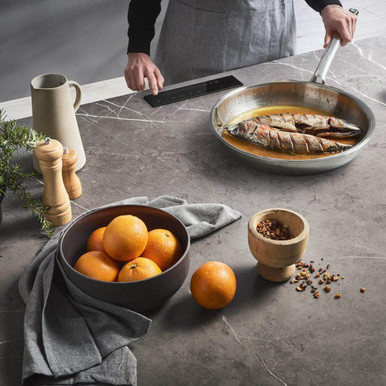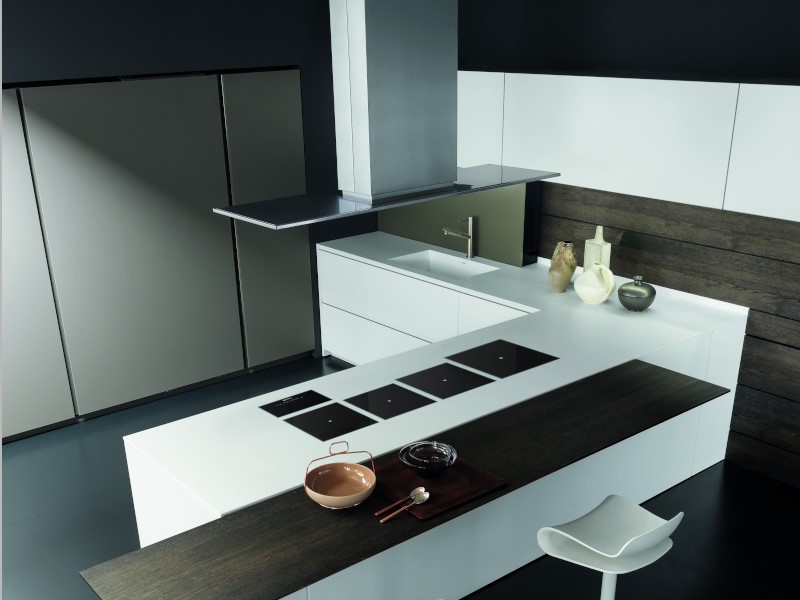Packard
Member
My GE induction cook top heats very fast with carbon steel or cast iron pots. Some aluminum pans have a sheet of 400 series stainless steel laminated to the bottom by pressing the aluminum into (probably) a thousand tiny holes. The net result is a “induction-ready” pot/pan that works at about 50% efficiency (in terms of how long it takes to heat).
Note: 400 series stainless steel is magnetic. But it will form moderate amounts of corrosion and cannot be polished to a bright shine. So stainless steel water kettles frequently have 300 series stainless steel for the upper portion of the pot (so it can be polished and look nice for retail) and have a 400 series base plate that will eventually look quite ugly.
Better quality pots (Cuisinart for example) capture a carbon steel plate between two layers of stainless steel. Those maintain a better appearance and heat quickly, but can cost 2 or 3 times as much.
I appreciate the fact that the induction cooktop will shut itself off if I forget it, and it will do so without damaging the cooktop, the pot, or my house (though the baked on food that is left in the pan can be a chore to clean up).
Note: 400 series stainless steel is magnetic. But it will form moderate amounts of corrosion and cannot be polished to a bright shine. So stainless steel water kettles frequently have 300 series stainless steel for the upper portion of the pot (so it can be polished and look nice for retail) and have a 400 series base plate that will eventually look quite ugly.
Better quality pots (Cuisinart for example) capture a carbon steel plate between two layers of stainless steel. Those maintain a better appearance and heat quickly, but can cost 2 or 3 times as much.
I appreciate the fact that the induction cooktop will shut itself off if I forget it, and it will do so without damaging the cooktop, the pot, or my house (though the baked on food that is left in the pan can be a chore to clean up).




